To mitigate flooding caused by rapid urbanisation, inadequate drainage system and climate-induced intense rains, Croatia chooses blue-green infrastructure such as parks and lagoons in Zagreb. Croatia also involves youth in its ‘Can you hear our rivers’ project, writes Samantha Ashford, a Scheldt Youth Parliament member who participated in the campaign.
"Can you hear our rivers?"
That question stunned us into silence. We were a group of 20 young individuals from across the globe, seated in a spacious room in an old building in Zagreb. We were part of Scheldt Youth Parliament that connects youth, policy makers and society.
It was Ms Marinic, representing Croatia’s water authority, who posed the question. As it turned out, it wasn’t just a question, but the name of the project that we would be working on, along with members of Sava Youth Parliament, an organisation that recognises the role of youth in river basin management.
While I've heard praises for Croatia's stunning blue sea, the rivers were a mystery to me. But it’s the rivers, River Sava in particular, that brought me from the Netherlands to Croatia.
"We need to understand and listen to our rivers, and recognise their vital importance.”
Ms Marinic’s voice brought me out of my reverie.
It suddenly dawned on me that healthy rivers equate to a healthier existence for us all.
Zagreb is blessed with the beautiful Sava River, which gracefully meanders through the city. The longest tributary of the Danube, Sava not only connects the major cities of Ljubljana, Zagreb and Belgrade, but also offers a pleasant environment for the citizens of Zagreb.
But there are also challenges, especially flooding, which the government is trying to address through eco-friendly measures.
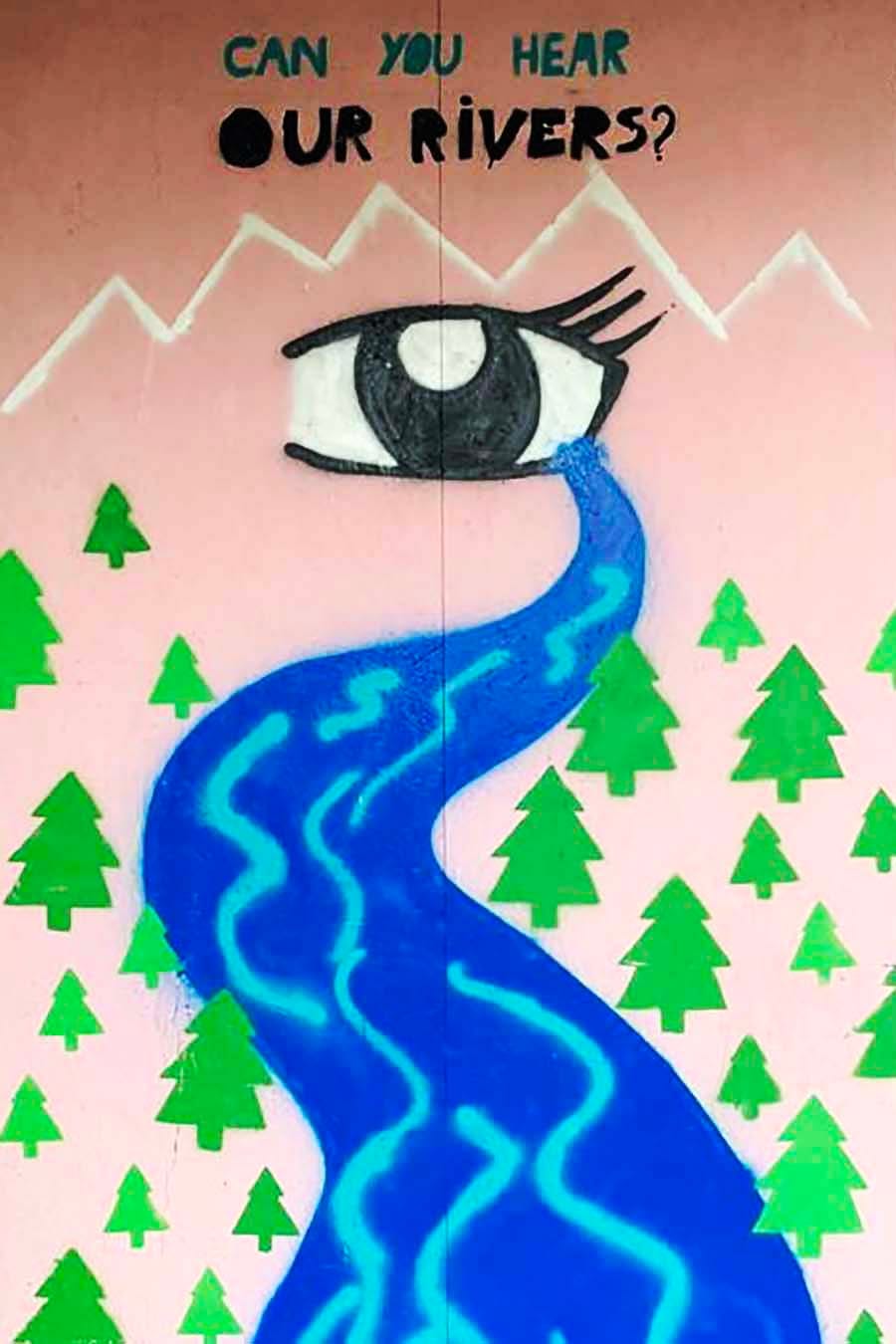
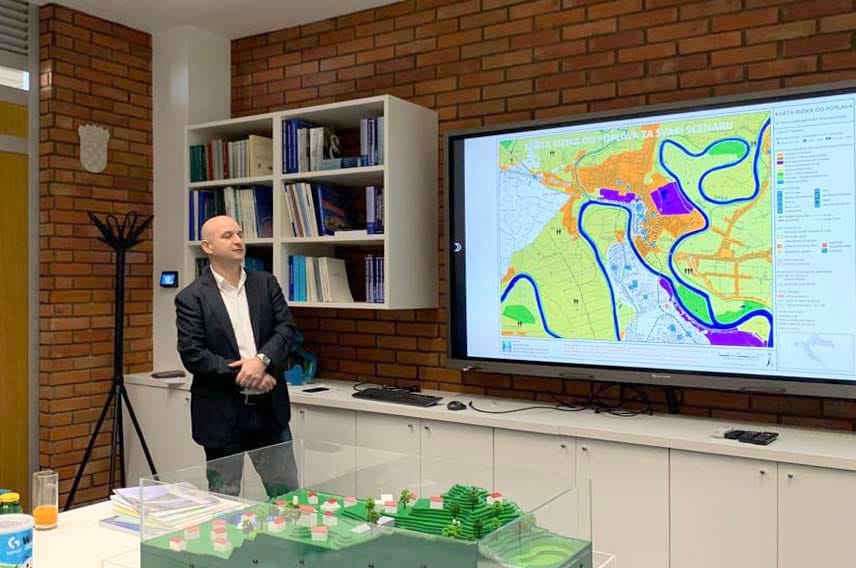
Left: the importance of Croatian rivers, such as the Sava, is emphasised through artistic expression. Right: a resource person at the Croatian Waters office explains the consequences of floods in Croatia. Photos: Samantha Ashford
Mitigating flood risks
At the workshop held at the office of Croatian Waters (Hrvatske vode), the national body under the Ministry of Environment and Energy and responsible for water management, we delved into the consequences of flooding risks and the crucial steps needed to prevent rivers from inundating our surroundings.
Although the workshop was brief, it provided invaluable insights into the challenges Croatia faces. Key challenges include intense rainfall within short periods, unsustainable urban expansion, increased paved surfaces, outdated sewage systems, and the presence of low-lying areas. The emphasis was on building away from lowlands and rivers, with a model demonstrating the potential consequences of neglecting proper water management practices.
To cope with flood risks and create climate-resilient cities, Croatian Waters has implemented comprehensive flood defence plans, to minimise flood damage. Moreover, the organisation leverages datasets from the European Flood Awareness System – a pan-European early warning system – and Southeast Europe Flash Flood Guidance System – a system that estimates impending flash floods in small basins – to continuously monitor water levels and proactively respond to potential risks.
To create sustainable and climate-resilient cities, Croatian Waters adopts the concept of green-blue infrastructure. This innovative approach entails integrating parks, lagoons and other green spaces that serve the dual purpose of alleviating the drainage system during floods and augmenting water retention. Additionally, the organisation plans to incorporate permeable surfaces, such as water-permeable pavement, stones, grids, besides grass, to enhance water absorption and prevent urban flooding.
Combining these technical solutions with a well-designed drainage system will significantly reduce urban flooding and resultant damages. Measures such as green parking lots, infiltration ditches, green roofs and gardens are also part of the vision of Croatian Waters.
Raising awareness
Croatian Waters has been creating awareness about the causes and consequences of floods among the public, most importantly the young minds. One of the initiatives is through educational materials titled Hrvatske vode for the youngest – which includes picture books. Additionally, a learning book for children has been developed, introducing them to the topic of floods in the country and emphasising the importance of proactive flood management.
The awareness programme includes a drawing competition for school children, which not only creates awareness about flooding among students but also encourages them to create awareness.
Furthermore, workshops that incorporate visuals and models, similar to the one that my friends and I at the youth parliament attended, serve as valuable educational platforms for students and visitors. These workshops provide a comprehensive understanding of the issue of flooding, and the significance of flood protection measures.
As Scheldt Youth Parliament members, we also created awareness through a street art workshop where we used illustrations to talk to the public about climate change. Our message was to highlight how rivers and nature suffer due to our pollutants, and to create awareness about the vital importance of our rivers for our ecosystem.
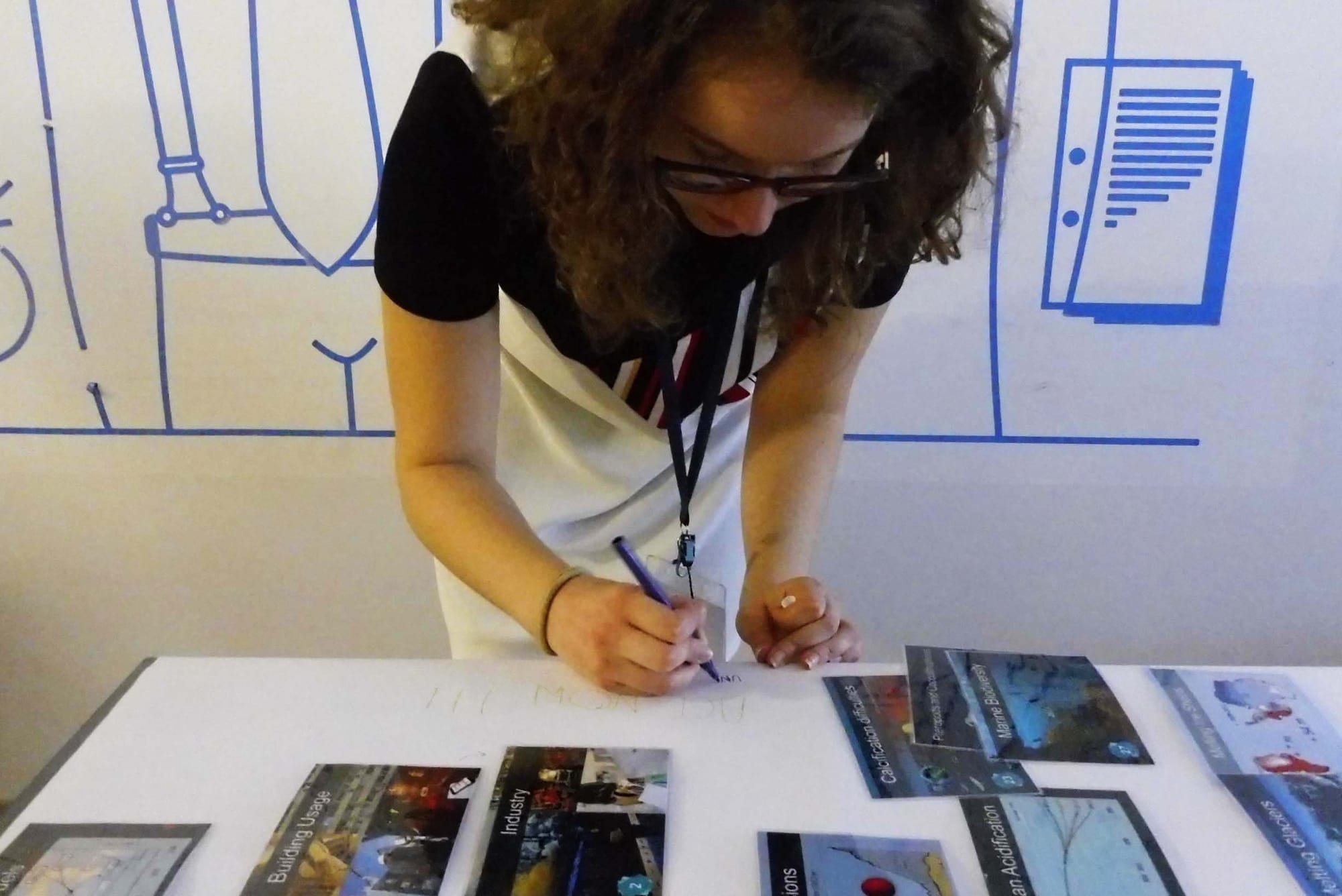

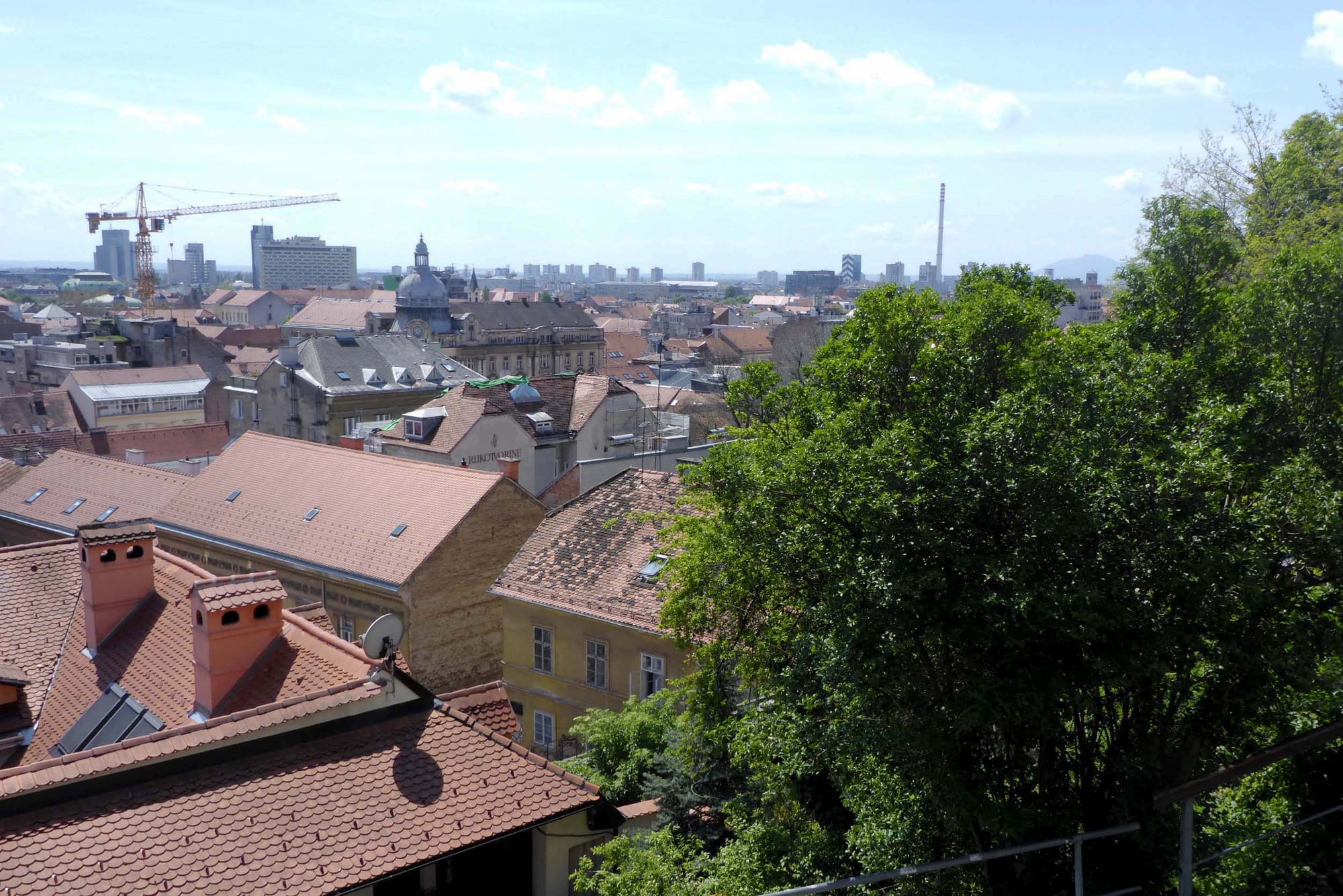
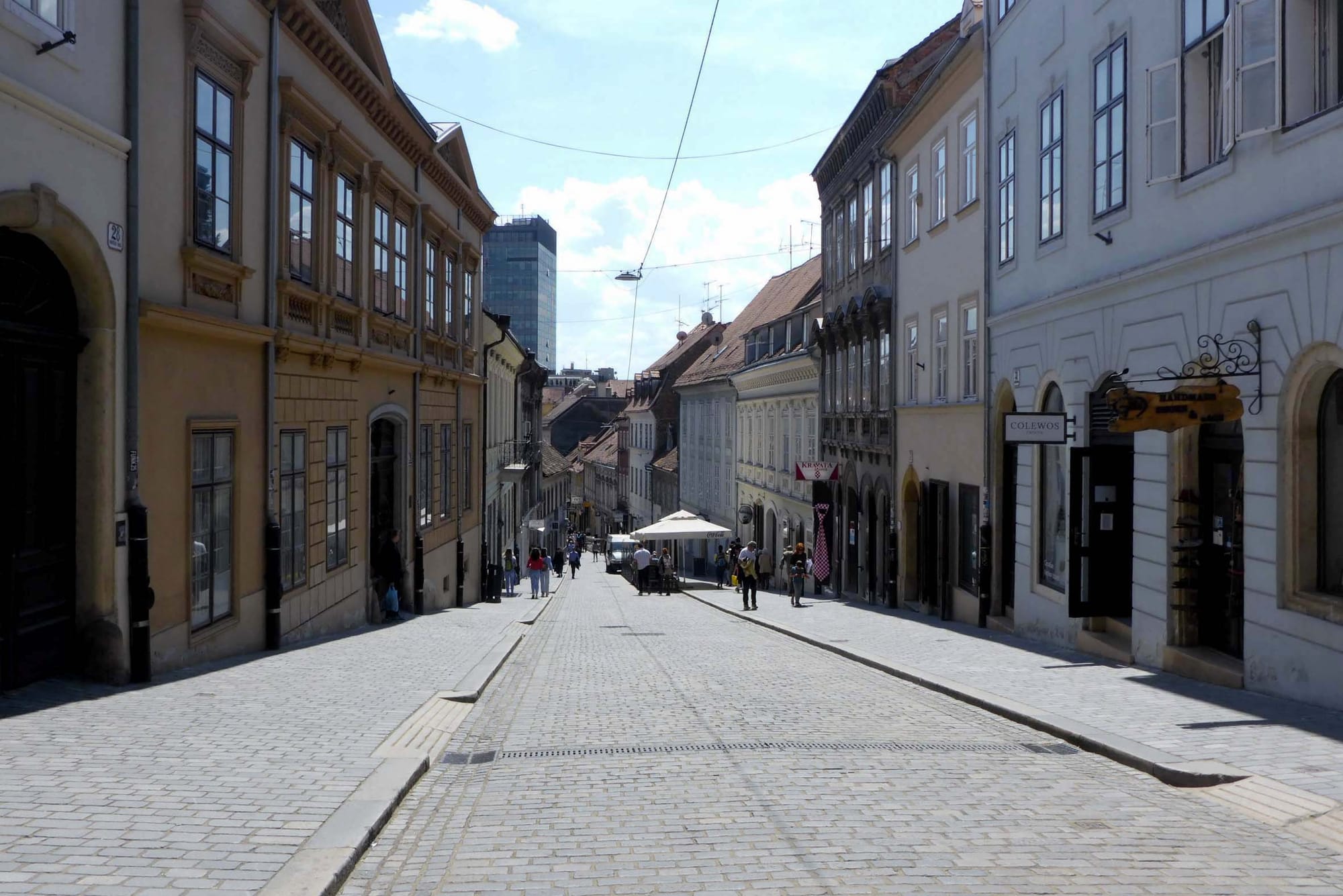
Top: Sava and Scheldt Youth Parliament members collaborate on the 'Climate Fresk Workshop,' categorising climate change impacts and exploring their cascade effects. Bottom: a tour of the city offered insights into Zagreb's infrastructure, crucial for understanding the city's vulnerability to climate change effects like extreme heat. Photos: Samantha Ashford
Listening to our rivers
Reflecting on my journey, I believe it is important to share the flood protection measures that Croatia has implemented to safeguard its citizens. The country’s dedication to flood resilience leads the way to a safer future. By raising awareness, implementing innovative strategies and fostering education, Croatia inspires other countries facing similar challenges.
As a water management student, I found great value in learning about different countries' approaches to flood solutions, considering their economic circumstances.
As the title of the project suggested, if we can listen to our rivers, we can broaden our understanding of water management and inspire innovative solutions for flood prevention and resilience in our own communities.



